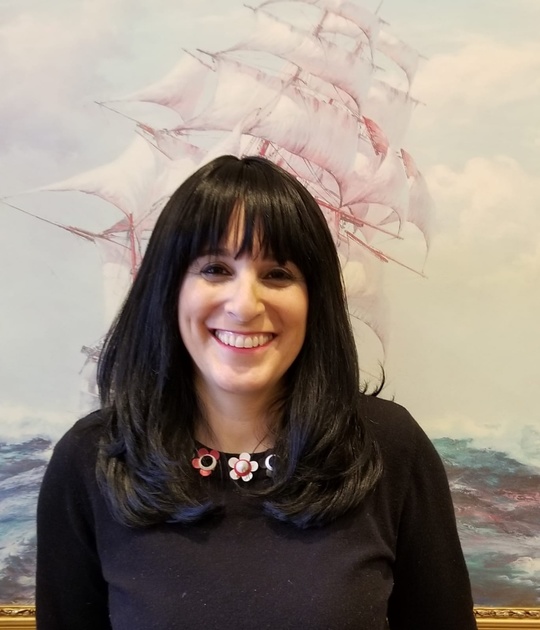
QUESTION: My mother was just diagnosed with cancer. She wants me to keep it a secret from everyone except my husband, who she trusts won't say anything if he is sworn to secrecy. She says that she doesn't want to become a pity case, and that for Hashem to make the miracle of her cure happen, nobody is allowed to know about it (because Hashem does not make open miracles). Of course, my father knows, too.
This is creating a terrible burden on me. I have a few married children, one of whom is expecting her first baby, and I am afraid I will not be available for her if my mother is going through treatment. Not being able to explain my dilemma would create hurt and bad feelings. It also complicates many aspects of my life because even though I don't work, I have obligations towards my husband's mother, whom we still go to for Yom Tov meals, for Sedarim and to help out before Pesach. Of course, with my husband and me working together, we can pull this off, but the thought of keeping her secret exhausts me.
Even if I think keeping it a secret is not the right thing to do, what do I do about her wishes for secrecy? It's not my secret to tell, and I do not want to transgress any halachos of kibud eim.
Answer:
A person is entitled to keep a secret, but asking another person to keep a secret for her when it entails so many lies and coverups is a highly problematic request, even when it looks like gadlus.
I hear this story over and over again. The parent swearing her adult or teenage child to secrecy when diagnosed with an illness. The burden on that child to hide the secret from other family members, including the grandparents (the parents’ parents), her children, other siblings, and close friends of the family.
How can one call that greatness?
The story of an older teen child or young adult living at home who becomes her mother's right hand, hiding chemo treatments from her married siblings, who covers for her mother when the siblings visit, bring the grandchildren, is a hard one to hear. It is simply cruel to burden others with that, to make someone dissemble and spread falsehood on a regular basis.
I remember sitting in a bungalow colony circle with a woman whose mother died of cancer. This woman spoke of the ongoing pain she experienced today as a result. She had no idea her mother was sick and often felt hurt and resentment when her mother brushed off her requests to babysit her children for an hour or so by saying things like, “I am not in the mood,” or “You don't need to go shopping today.” She had always wondered why her mother appeared to be so disinterested in her children and was so cold towards her. This woman felt tremendous guilt for not having been able to be dan l'chaf zechus, but as a human being, I would think that is a level of greatness the mother could not have realistically asked of anyone short of a saint, which her daughter was not, and neither are most daughters who still love their mothers.
Another woman once told me (none of these people are clients, obviously) how she was her best friend's confidante when she was going through years of cancer, in which nobody except she and the husband were aware of her illness. When the best friend was finally given a prognosis of a few weeks to live, and her mother was called to her hospital bed, this woman said she would never forget the mother's screams. “How dare you not tell me my daughter was sick? Do you know how a mother's Tehillim could have impacted in Heaven?”
The negative effects of this secrecy on both the secret keeper and those who learn about the secret only close to the person's death are extremely detrimental. Even if the illness is successfully cured and life goes back to normal. Which it doesn't, because after a serious illness, there is always a new normal, and if the secret is still a secret, that new normal doesn't become normal; in being driven underground, it becomes abnormal because of the lack of opportunity to process the crisis that has just passed.
The overall negative aspects of keeping an illness secret was discussed in another column. Here, the writer specifically is asked by her mother to keep her secret, but she is not comfortable with it because of the ways it personally impacts her, her relationship with her children, and other people in her life, such as her in-laws.
In my response here, I am speaking about the psychological and relational ramifications of this secret and not the halachic obligations of the letter-writer. Using the information of this column, a Rav can be consulted for a psak. Despite my many great attributes, I have not yet become a Rabbi. Or Rebbetzin, for that matter.
What are the reasons people want to keep their illness a secret? As the writer has said: not to become an object of pity; that miracles are more easily accessed when hidden from the eye; to spare others pain; not to bother others; and fear of what others will say (i.e. shidduchim).
I will respond to each of these in order.
Being an object of pity is a frame of mind and not as a result of externals. Sympathy does not equal pity.
Hashem is not limited in His abilities to create miracles, and anyway, achieving remission or being cured from cancer is not miraculous anymore. Many people are expected to achieve a cure. While the details of the cancer may need to be hidden because a cure in a specific case may definitely necessitate a miracle, the simple knowledge of cancer does not. For example, more than 15.5 million children and adults with a history of cancer were alive on January 1, 2016, in the United States. Get what I mean?
The notion to spare others pain is very egocentric thinking, as selfless as it sounds. First of all, if a person wants to spare his children pain of knowing he has cancer, children are pretty resilient. They will not be pained if they see their ill parent cheerful and upbeat. They will take their cue from their parent. So knowing won't affect them too much once the shock of the diagnosis wears off. A parent who does not know their adult child is ill will feel excruciating pain when they do find out at having not being able to help physically, emotionally, spiritually. When they do not have enough time to grieve and face their child's death. In the event that the parents never need to know, the child has taken away their parents’ ability to be their parent and the relationship undergoes a change that is felt, although not understood by the parent, a change that interferes with the previous closeness of that relationship.
There is no research that suggests a negative impact on parents who find out their adult child has cancer if done in an emotionally healthy manner. If anything, successfully working together with cancer often brings a family closer together.
The feeling of not wanting to bother others is not a Jewish concept. We are a community of families built on chessed. Healthy relationships do not feel like a bother; on the contrary, in loving relationships, the act of giving is also an act of loving and of strengthening bonds. Telling other about cancer simply gives others the ability to connect and give in ways that enrich their lives. Ask any person with cancer if they would be happy to help someone else with cancer, and the answer is a resounding yes. But they cannot accept that same kind of love and giving from others.
The fear of others finding out about cancer because it will impact shidduchim is a valid one. The only one on the list that is. But again, it is selfish to put your child into a difficult situation of hiding your cancer from his/her spouse until after the wedding. And what kind of chinuch is it — even if that child and spouse never know — that this secret was kept for fear of shidduchim. Shidduchim will happen as they are meant to. And if someone does not want a shidduch because of cancer, then that is bashert. A marriage cannot be built on secrets. Nobody's secrets. Not the child's; not the parents'.
So what to do?
Tell your mother that although you will not be broadcasting her illness to the world, as it interferes in the lives of people around you (your daughter who is expecting her first child, your mother-in-law who is expecting your help), you may have to let them know. You will not ruin relationships because of an imagined set of what-ifs your mother is projecting. And if your mother says, “Don't tell. Go help your mother-in-law, go to your daughter in the hospital,” you may need to say, “Mother, it is too late now for that. You are my priority and I am not leaving you alone to get chemo. Or in the house while you are vomiting. Once you told me about your illness, I want to be with you. But those others in my life need to know so that they can also be part of it.” Because your daughter will say, “Ma, don't worry, I will manage without all your help. You take care of Bubby now.”
Be open. Be firm. Be realistic.
Maybe you may even have to say, “Mother, I need support with this. It is very hard to carry this secret alone. I need to tell my sisters, my best friend, my mother-in-law. But they will keep it quiet too. Nothing is really a secret. You will meet people at the doctor, when Hatzalah comes, in the hospital. It happens. And when it does, it's okay.”
Your mother will come around when she sees the world doesn't come crashing around her feet when people know or send a cake or card, or simply understand.
Once, someone very smart told me, “Mindy, I can either spend my energies keeping the cancer a secret, or I can spend my energies getting well. Not both.” She chose well.
ORIGINALLY PUBLISHED IN BINAH MAGAZINE
Look me up on LINKEDIN https://www.linkedin.com/in/mindy-blumenfeld-a8067583
Check out my book THERAPY SHMERAPY, available in bookstores and through Amazon
Browse through my previously published articles on my former blog Therapy Thinks and Thoughts at frumtherapist.com/profile/MindyBlumenfeldLCSW
Read current articles in my bi-weekly column THERAPY: A SNEAK PEEK INSIDE in Binah Magazine, available on newsstands every Monday.
 Previous
Previous

